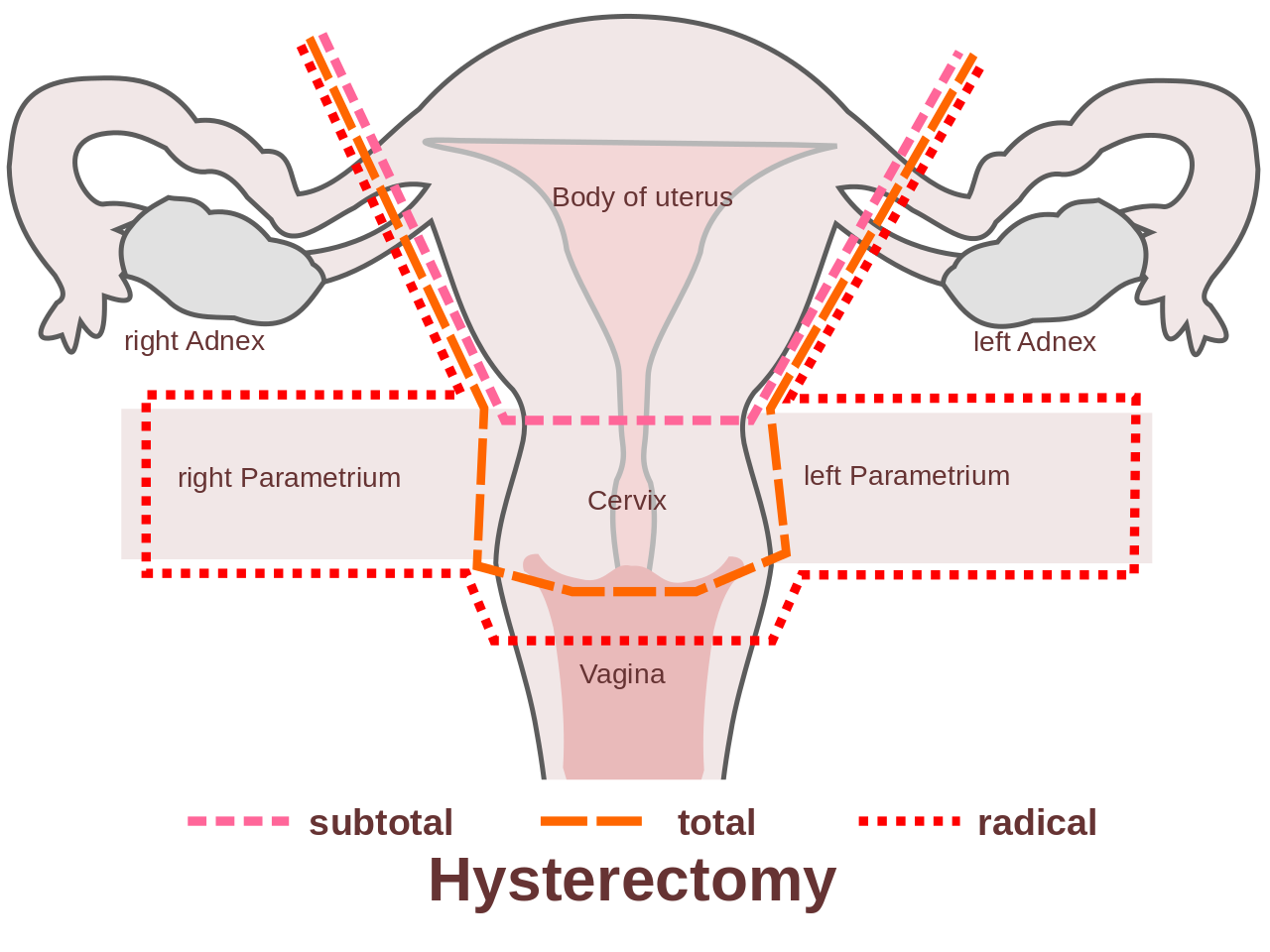
Vaginal hysterectomy is a surgical procedure aimed at removing the uterus through the vagina. It offers several advantages over abdominal hysterectomy, including a shorter hospital stay, lower cost, and faster recovery time. This procedure is generally preferred when the uterus is of average size and there are no complications or significant enlargement present. Vaginal hysterectomy is considered a minimally invasive approach and can result in less post-operative pain and scarring compared to abdominal hysterectomy. However, it is important to note that the feasibility of vaginal hysterectomy depends on the size of the uterus. In cases where the uterus is significantly enlarged or there are other complicating factors, an abdominal approach may be necessary.
Performing a vaginal hysterectomy requires a skilled surgical team with expertise in the procedure. The surgical team must carefully assess the size and condition of the uterus to determine the appropriate approach and ensure a successful outcome. Close collaboration and coordination among the surgeon, anesthesiologist, and supporting staff are vital to the success of the surgery. With the appropriate expertise and careful consideration of individual circumstances, vaginal hysterectomy can be an effective and less invasive option for women requiring uterine removal. It is important to consult with a qualified healthcare professional to determine the most suitable approach based on your specific condition and medical history.
Pre-operative and post-operative tips for vaginal hysterectomy
Pre-operative Tips:
- Consultation and Evaluation: Schedule a consultation with your gynecologist to discuss the procedure, undergo a thorough evaluation, and address any concerns or questions you may have.
- Medical History and Medications: Provide your complete medical history to your healthcare team, including any medications, supplements, or allergies. Follow their instructions regarding the use of medications before the surgery.
- Pre-operative Tests: Your surgeon may order certain pre-operative tests, such as blood work or imaging, to assess your overall health and ensure you are suitable for the procedure. Attend these tests as scheduled.
- Fasting and Medication Instructions: Follow the fasting instructions provided by your healthcare team, which typically involves refraining from eating or drinking for a specified period before the surgery. Comply with any medication instructions, such as stopping blood-thinning medications if advised.
- Preparing for Recovery: Arrange for someone to accompany you to the hospital and assist you during the initial recovery phase. Ensure your home environment is clean, comfortable, and stocked with necessary supplies for your post-operative care.
- Hospital Stay: Depending on the specifics of your surgery, you may require a short hospital stay. Follow the instructions of your healthcare team and nursing staff during this time.
- Pain Management: Take prescribed pain medications as directed to manage any discomfort. Inform your healthcare provider if the pain is not adequately controlled or if you experience any concerning symptoms.
- Activity Restrictions: Follow the activity restrictions provided by your surgeon. Avoid strenuous activities, heavy lifting, and sexual intercourse as advised during the initial recovery period.
- Wound Care: Keep the incision area clean and dry as instructed. Follow any specific wound care guidelines given by your healthcare team.
- Medications and Follow-up: Take prescribed medications, such as antibiotics or pain relievers, as instructed. Attend all scheduled follow-up appointments with your healthcare provider to monitor your healing progress and address any concerns.
- Emotional Support: Seek emotional support from loved ones or consider joining support groups to help cope with any emotional or psychological changes that may occur post-surgery.
- Resuming Normal Activities: Gradually increase your activity level as recommended by your healthcare team. Return to work and regular activities when given the clearance to do so.
- Report any Complications: Contact your healthcare provider immediately if you experience severe pain, excessive bleeding, signs of infection, or any other concerning symptoms.